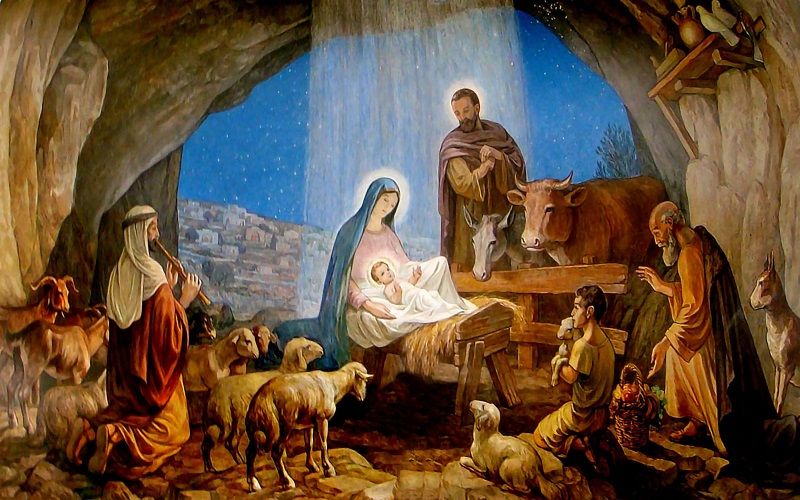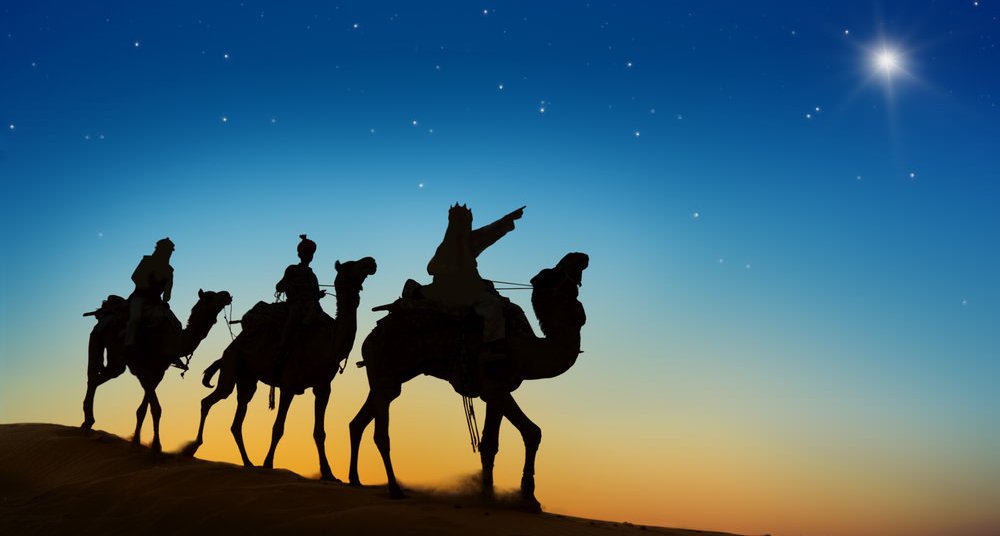Custom. According to tradition, the birth of Jesus took place on December 25. The Oxford Dictionary of World Religions defines Christmas as the "Christian holiday that commemorates the birth of Jesus, celebrated on December 25." Its roots. "The election of December 25 has no foundation in the Bible," explains The Christmas Encyclopedia, "but in the pagan Roman festivals that were celebrated at the end of the year," approximately at the time of the winter solstice, when the days begin to lengthen. , in the northern hemisphere. Those festivals included the Saturnalia, in honor of Saturn, the god of agriculture, "and the combined festivals of two solar gods, the Roman Sun and the Persian Mithras," the same encyclopedia notes. The latter commemorated the birth of both gods and were celebrated on December 25, the date of the winter solstice according to the Julian calendar. Those pagan festivals began to "Christianize" in the year 350, when Pope Julius I designated December 25 as the birthday of Jesus. "The Nativity assimilated or gradually supplanted all other solstice rites," says the Encyclopedia of Religion. Solar imagery was increasingly used to represent the resurrected Christ (who was also called the Unconquered Sun), and the old solar disk [...] became the halo of the Christian saints. " What the Bible says The Scriptures do not mention the date of Jesus' birth, but we can be sure that he was not born on December 25. Why? The Bible reveals that when Jesus was born there were pastors who "lived in the open field" and tended their flocks at night near Bethlehem (Luke 2: 8). Now, in October the cold and rainy season began, and by December, the cold intensified and even came accompanied by snowfall. Then, the shepherds-especially those from the colder highlands, such as those around Bethlehem-kept their flocks in shelters at night.

A significant fact is that the early Christians, many of whom had accompanied Jesus in his ministry, did not celebrate his birthday on any date. Rather, in harmony with what he commanded them, they only commemorated his death (Luke 22: 17-20, 1 Corinthians 11: 23-26). However, some may wonder if the connection with paganism really matters. The answer is that God does care. Jesus Christ said: "True worshipers will worship the Father with spirit and with truth" (John 4:23).
2) The "wise men": how many were they and what did they really do? Custom. It is usually represented three "wise men" who come from the East guided by a "star" and offer gifts to the baby Jesus in the manger of a stable. Sometimes pastors also appear in the scenes. Its roots. Apart from the brief account of the Scriptures, "all this does not stop being a simple legend without any biblical basis, carried from one side to another by tradition," says the exegetical commentary on the Greek text of the New Testament. What the Bible says The Bible does not say how many they were. It could have been two, three, four or more. The word to designate them in the original language is magoi, and does not mean kings, but astrologers or sorcerers, who, according to the Bible, were something "detestable to Jehovah" (Deuteronomy 18: 10-12). Due to the long journey they made from the East, the astrologers could not arrive in time to visit Jesus in the stable. Rather, after perhaps months of travel, they "entered the house" where he lived. There they saw "the little child with Mary his mother" (Matthew 2:11).
3) What kind of star led astrologers? We can get an idea thinking about what the star did. On the one hand, he did not take the men directly to Bethlehem, but to Jerusalem, where their questions about Jesus reached the ears of King Herod. The king "secretly sent for the astrologers," who told him about the newborn "king of the Jews." Herod then told them: "Do a careful search of the little boy, and when you have found him come back and inform me." However, Herod's interest in Jesus was not well intentioned, far from it. Actually, that proud and ruthless ruler was determined to kill Jesus
Interestingly, the "star" later led the astrologers south to Bethlehem and, once there, "stopped" over the house where Jesus was
Obviously it was not a normal star. Furthermore, if God had sent angels to inform humble shepherds of the birth of Jesus, why should he resort to a star to guide pagan astrologers, first to his enemy and then to Jesus himself? The only reasonable conclusion is that the star was a sinister trick of Satan, who is capable of such manifestations. It is paradoxical that on the tip of the Christmas tree is placed an ornament called the star of Bethlehem.


No hay comentarios:
Publicar un comentario